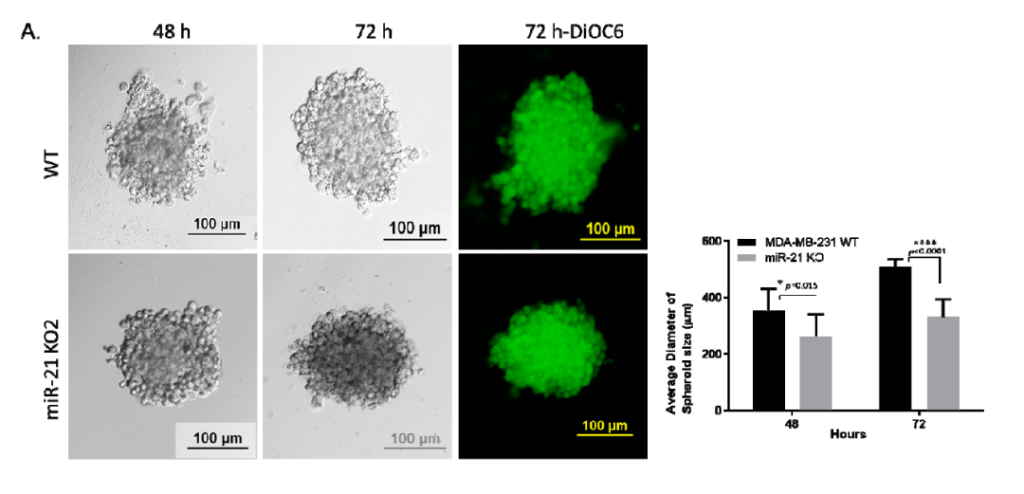Removal of miRNA can reverse the metastasis of breast cancer
- Normal Liver Cells Found to Promote Cancer Metastasis to the Liver
- Nearly 80% Complete Remission: Breakthrough in ADC Anti-Tumor Treatment
- Vaccination Against Common Diseases May Prevent Dementia!
- New Alzheimer’s Disease (AD) Diagnosis and Staging Criteria
- Breakthrough in Alzheimer’s Disease: New Nasal Spray Halts Cognitive Decline by Targeting Toxic Protein
- Can the Tap Water at the Paris Olympics be Drunk Directly?
Removal of miRNA can reverse the metastasis of breast cancer
- Should China be held legally responsible for the US’s $18 trillion COVID losses?
- CT Radiation Exposure Linked to Blood Cancer in Children and Adolescents
- Can people with high blood pressure eat peanuts?
- What is the difference between dopamine and dobutamine?
- What is the difference between Atorvastatin and Rosuvastatin?
- How long can the patient live after heart stent surgery?
Removal of miRNA can reverse the metastasis of breast cancer. Breast cancer is the most common cancer among women. In 2020, breast cancer will replace lung cancer and become the world’s largest cancer.
The latest global cancer burden data released by the WHO International Agency for Research on Cancer (IARC) shows that in 2020 There were 2.26 million new cases of breast cancer worldwide and 680,000 deaths. In some countries, the incidence of breast cancer is also increasing year by year. According to WHO’s forecast, China will have 410,000 new breast cancer cases in 2020.
Most breast cancers have a good prognosis, but about 10%-20% of breast cancers are triple-negative breast cancer (TNBC), which is due to estrogen receptor (ER) and progesterone receptor (PR) It is named after the lack of human epidermal growth factor receptor-2 (HER-2). Triple-negative breast cancer is the most aggressive breast cancer, which is more prone to spread and metastasize, and is prone to relapse. In addition, due to the lack of therapeutic targets, treatment drugs are limited. It has always been a difficult point in breast cancer treatment.
miRNA is an endogenous non-coding RNA with a length of about 21-23 nucleotides. Although miRNA cannot encode protein, it can bind to the binding site on the target gene mRNA 3’UTR to regulate gene expression. Then indirectly realize the regulation of physiological and pathological conditions. Studies have shown that miRNA is closely related to the development and metastasis of cancer.
Recently, researchers from the University of Westminster and other units in the United Kingdom published a research paper entitled: MiR-21 is Required for the Epithelial–Mesenchymal Transition in MDA-MB-231 Breast Cancer Cells in the International Journal of Molecular Sciences.
The study found that in triple-negative breast cancer, the expression of miRNA called miR-21 was significantly increased, and it was also associated with cancer cell metastasis. After miR-21 was knocked out through CRISPR-Cas9 gene editing, the metastatic ability of triple-negative breast cancer cells was significantly inhibited. After miR-21 is knocked out, the extracellular vesicles secreted by breast cancer cells are reduced, thereby inhibiting the metastasis and spread of cancer cells. Therefore, miRNA can be used as a potential target for early detection and treatment of triple-negative breast cancer.

Breast cancer is the number one cancer in women and one of the most important health problems for women. Although the survival period and survival rate of breast cancer have been greatly improved due to early screening, targeted therapy, and immunotherapy, but Triple-negative breast cancer is still a difficult point in breast cancer treatment.
The research team compared common breast cancer cell
s MCF-7 and SK-BR-3 BCa with aggressive breast cancer cells MDA-MB-231 and found that the expression of miR-21 was significantly increased in aggressive breast cancer cells.
Then the research team knocked out miR-21 through CRISPR-Cas9 in the aggressive breast cancer cell MDA-MB-231, and found that the epithelial-mesenchymal transition of these cancer cells was reduced (epithelial-mesenchymal transition refers to the transformation of epithelial to mesenchymal cells, which Give cells the ability to transfer and invade). Overexpression of miR-21 will significantly increase the epithelial-mesenchymal transition of cancer cells.
In addition, compared with control cells, the release of extracellular vesicles (EV) in invasive breast cancer cells that knocked out miR-21 was significantly reduced, and the relative miR-21 in extracellular vesicles (EV) was also significantly reduced.


Overall, the study showed that high expression of miRNA is a sign of invasion of new triple-negative breast cancer, and the absence of miR-21 inhibited cell survival and clone formation of aggressive breast cancer cell MDA-MB-231, and reduced breast Extracellular vesicles (EV) released by cancer cells and miR-21 in vesicles. miR-21 promotes epithelial-mesenchymal transition through the sky GSK3 and Wnt-11 signal transduction, endows cancer cells with metastasis and aggressiveness. Therefore, miRNA can be used as a potential target for early detection and treatment of triple-negative breast cancer.
The leader of the study, Dr. Pinar Uysal-Onganer of the University of Westminster, said that this is an important study that will help to better understand the role of miRNAs in aggressive cancer types such as triple-negative breast cancer. He also said that the next goal of the research team is to clarify the relationship between miR-21 and cancer drug resistance, which is another important factor restricting cancer treatment.
(source:internet, reference only)
Disclaimer of medicaltrend.org



